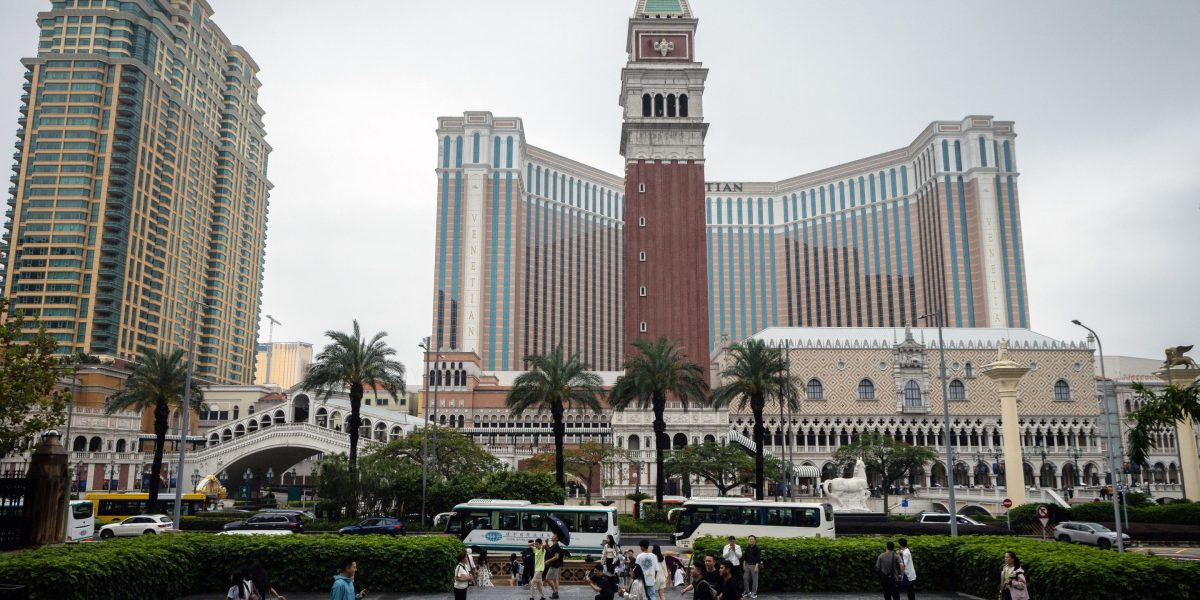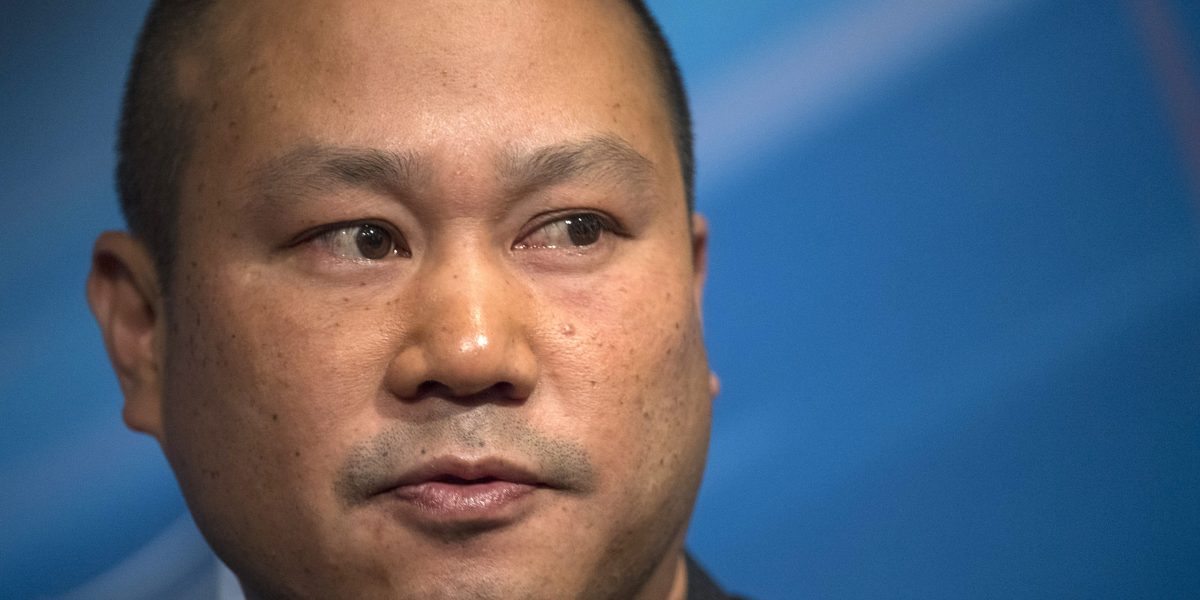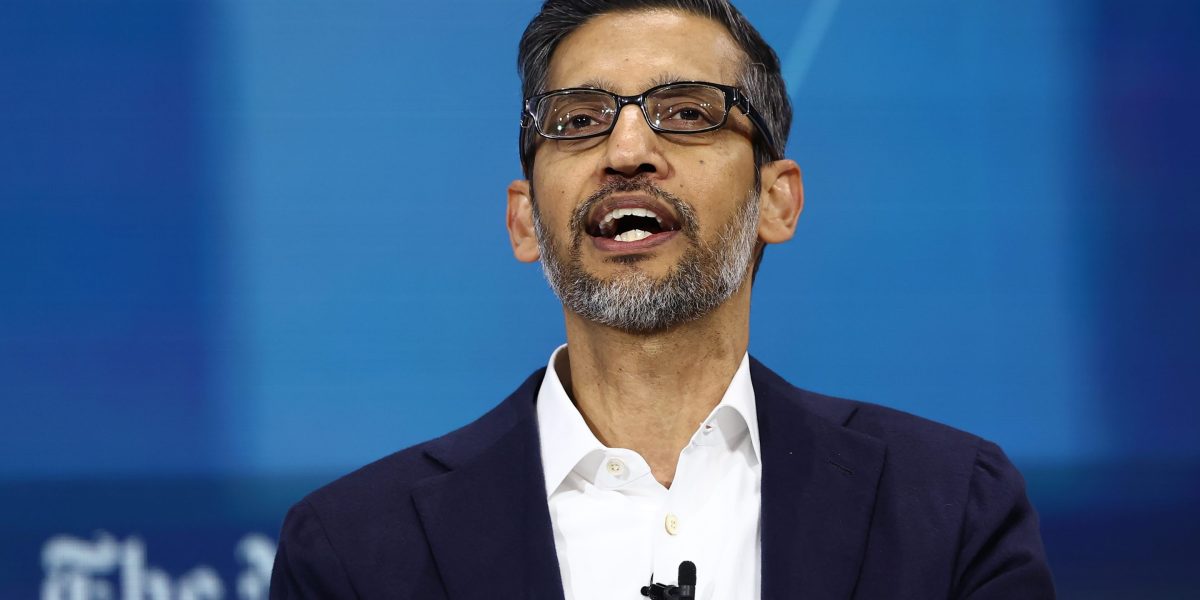If the economy is heading into a downturn, Google hasn’t felt it.
Or at least, it didn’t feel it up until March 31.
The internet search giant reported strong Q1 results on Thursday that sent its stock up as much as 5% after hours, as its key advertising and cloud businesses delivered healthy growth. But those results apply to the first calendar quarter of the year, just before the Trump-triggered global trade war began in earnest.
As for the business conditions Google is currently experiencing: Google isn’t saying. Executives at Google-parent company Alphabet maintained a disciplined silence on Thursday’s earnings call about anything that’s happened in the current quarter, despite analysts’ efforts to get an update.
“It’s really too early to comment,” chief business officer Philipp Schindler said in response to one such query.
“We’re obviously not immune to the macro environment, but we wouldn’t want to speculate about potential impacts,” Schindler said. (The one tidbit of information Schindler was willing to share involved the scrapping of the so-called de-minimis shipping exemption relied on by Chinese retailers like Shein and Temu, which would cause a “slight headwind” to Google’s advertising business in 2025, particularly from Asian retailers).
After weeks of turmoil in the markets, and a variety of concerns weighing on Google in particular, the company’s strong Q1 report card—along with the news that it would bump up its dividend by a penny a share and repurchase another $70 billion of stock—was more than enough reason for investors to celebrate on Thursday.
Google grew its topline 12% year-over-year in Q1 to $90.2 billion, beating the average analyst expectation of $89.2 billion, while earnings per share came in at $2.81 versus the $2.01 expected by Wall Street. The company ascribed the growth to strong demand from advertisers in the financial industry, insurance, healthcare, and retail.
Revenue from ads on video site YouTube grew 10% from the prior year to $8.9 billion, while Google’s cloud business increased 28% to $12.3 billion.
Alphabet CEO Sundar Pichai touted gains in the company’s AI efforts, including the “AI Overviews” being rolled out across Google’s search service, which Pichai said is now used by 1.5 billion users per month. And the company re-affirmed its previously announced plan to spend $75 billion in capital expenditures for its cloud and AI infrastructure this year, signaling that it remains bullish on the AI business.
Many dangers facing Google
It’s a tricky time for Alphabet. Going into Thursday’s earnings report, the company’s shares had slid roughly 15% so far this year, larger than the drop suffered by the Nasdaq or the S&P 500.
Alphabet’s business faces grave dangers on multiple fronts, as the economic uncertainty of Trump’s tariffs pressures its core advertising business, the proliferation of powerful new AI models threaten to disrupt its internet search dominance, and government regulators seek to break up the company.
The court cases and regulatory threats faced by Alphabet went unmentioned during Thursday’s earnings call, as executives highlighted progress in the company’s various products, from its fast-growing YouTube subscriptions business to its self-driving Waymo cars.
The fact that Alphabet historically hasn’t offered detailed “guidance” forecasts on its earnings calls gives it some cover to avoid the elephant in the room—the current state of demand from advertisers (as opposed to the state of demand in Q1).
Because advertising accounts for roughly three-quarters of Alphabet’s revenue, the health of the global ad market in the months to come will be critical. Advertising and marketing budgets are typically among the first expenses companies cut in an economic downturn, and with uncertainty over tariffs, many economists and investors are concerned about a potential recession.
If Google’s business were truly falling off a cliff in April, the company may have felt obligated to at least give some kind of warning. To some, the fact that Google stayed mum could be interpreted as a tacit sign of confidence. And while Schindler sidestepped questions about business conditions in April, he alluded to Google’s experience in previous economic recessions and the comparative resilience of search advertising compared to other types of advertising.
“To zoom out,” Schindler said, “I would say we have a lot or experience in managing through uncertain times.”
This story was originally featured on Fortune.com
Source link


 Politics8 years ago
Politics8 years ago
 Entertainment8 years ago
Entertainment8 years ago
 Entertainment8 years ago
Entertainment8 years ago
 Entertainment8 years ago
Entertainment8 years ago
 Tech8 years ago
Tech8 years ago
 Tech8 years ago
Tech8 years ago
 Tech8 years ago
Tech8 years ago
 Tech8 years ago
Tech8 years ago






